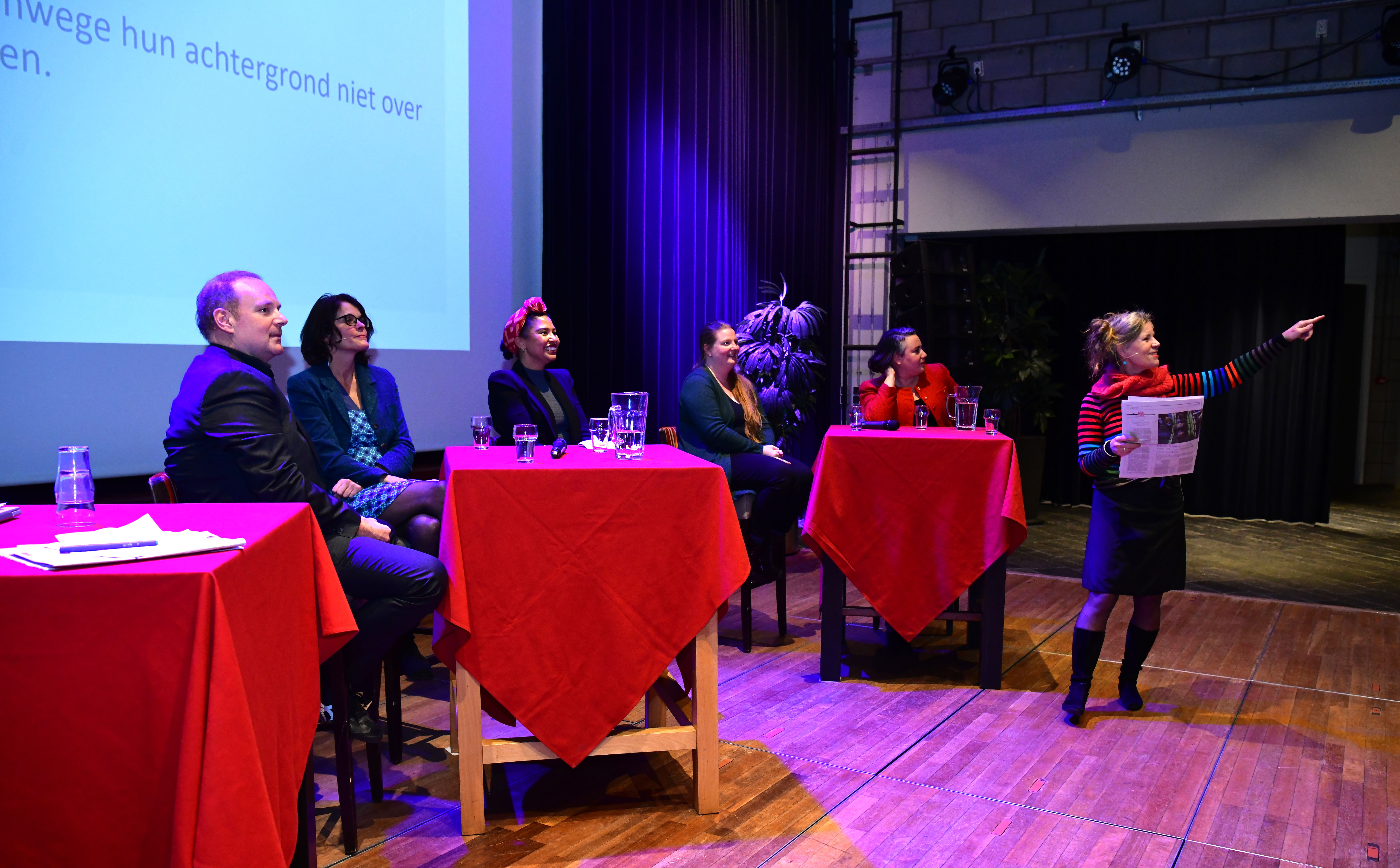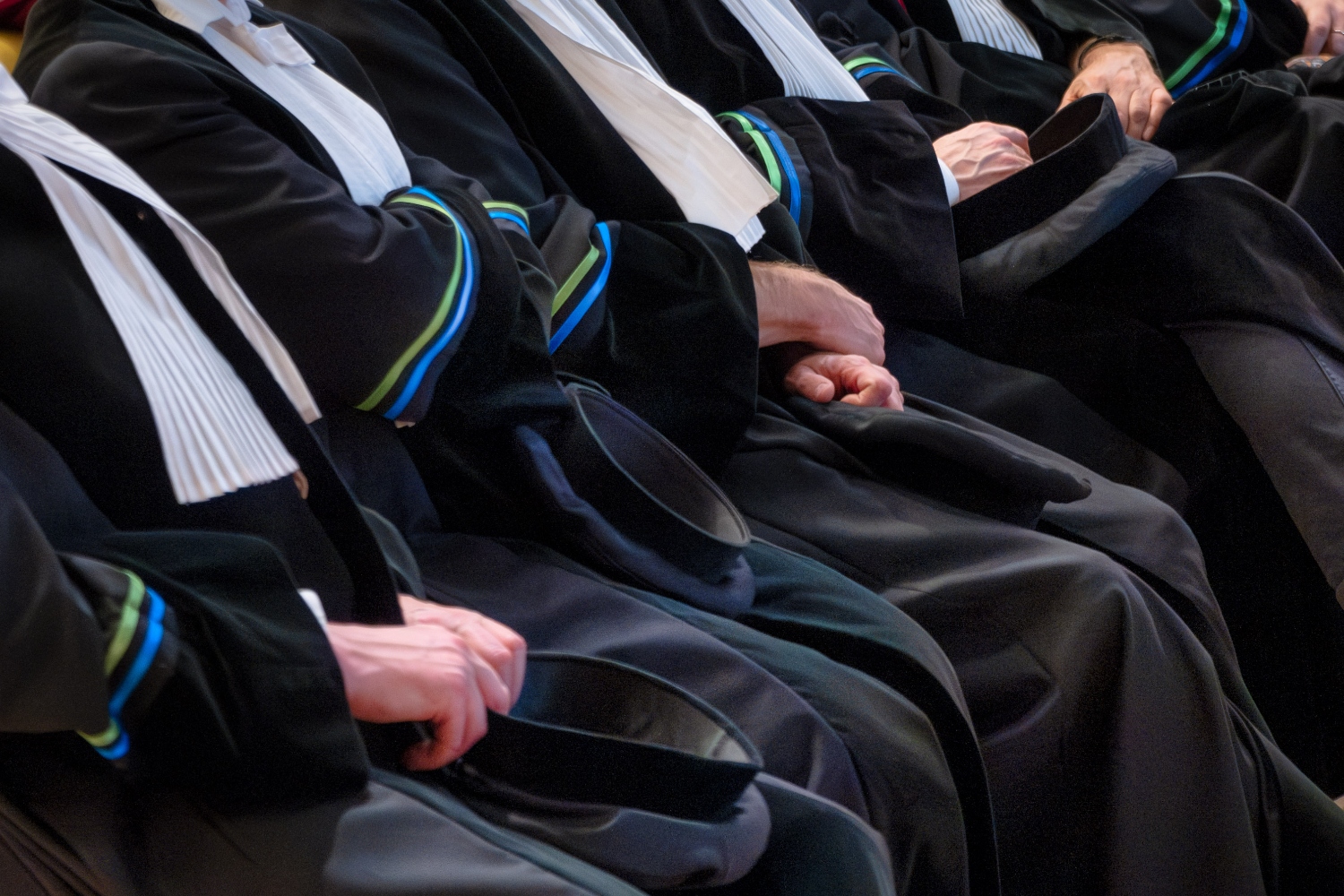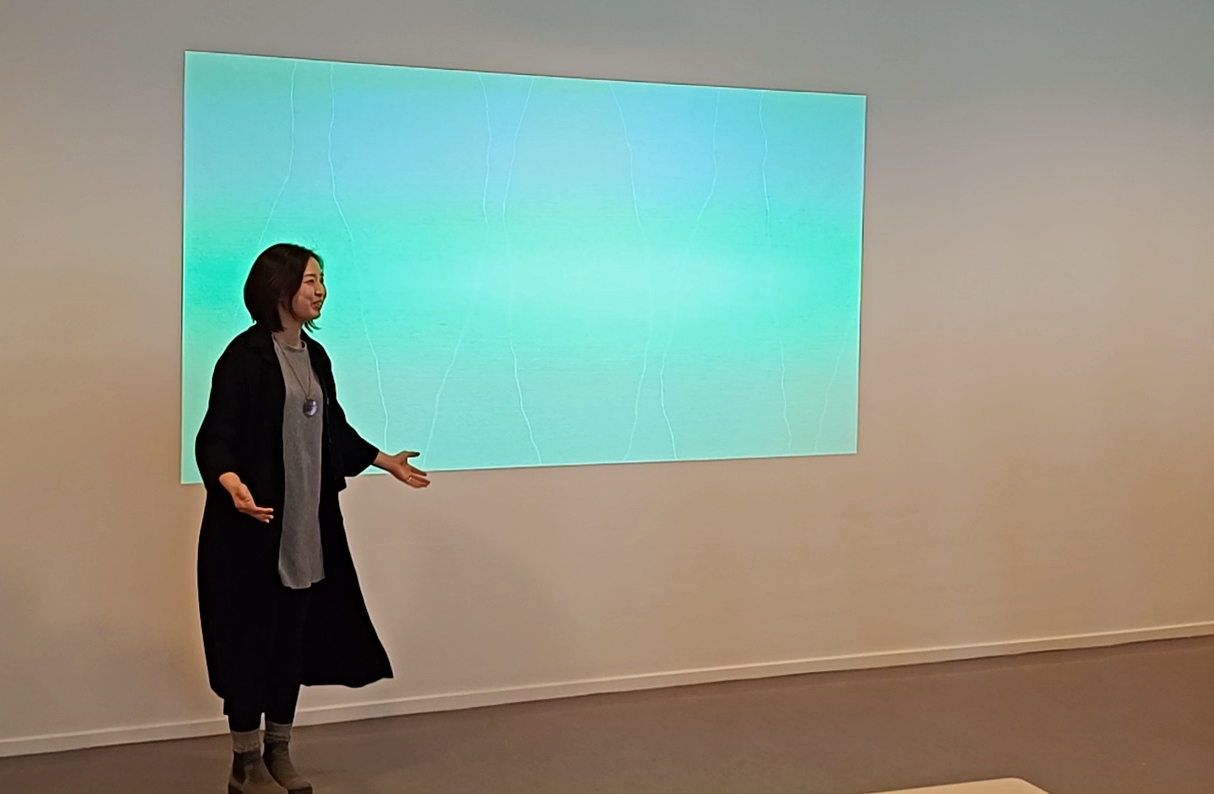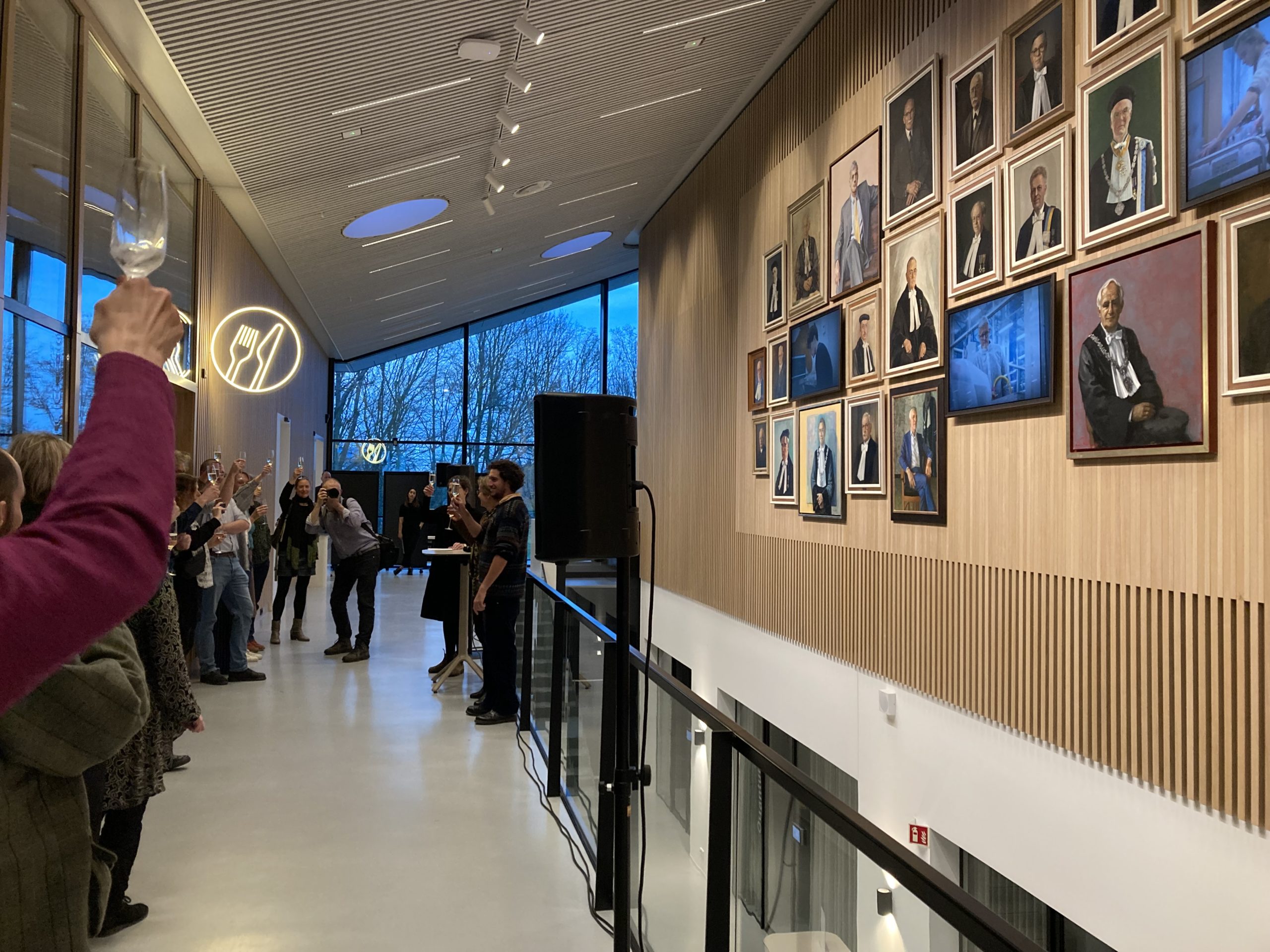At an event for college and university media, among whom Resource, the agenda focused on ‘inclusive journalism’. On Twente University campus, editors and experts exchanged views during a panel discussion on Thursday afternoon. ‘There is no pleasing everyone.’
Speaker Elizabeth Venicz, anthropologist, journalist and teacher at Fontys University College, introduced the topic of ‘inclusive journalism’. ‘Even while making this presentation, I was somewhat jealous of colleagues who merely discuss data. I feel that this topic is quite a struggle, and that will likely apply to many editorial boards. Every word is a potential minefield, and navigating the different views, and political currents is quite challenging. There is no pleasing everyone.’
Craftsmanship
With this message in mind, Venicz stressed that there are options for editors to develop their own compass for diversity and inclusion. ‘Not every journalist is of the same opinion. It may vary from a conservative aristocrat to an activist fighter. But you can actively work on inclusive journalism. To me, a form of craftsmanship.’
She pointed out the value of counting. Actively keeping track of the representation of groups for which the BBC, for example, uses targets. But also the value of a diverse editorial board, with a variety of perspectives, photography (how do you portray a professor and a homeless person?) and not reducing the interviewee to a ‘single story’.
Our work consists of carefully considering what we put in writing and how. And we do not omit facts simply because they are inconvenient truths.
Peter Breedveld
Venicz joined Cleo Freriks (editor of the Maastrichtse Observant), Peter Breedveld (Ad Valvas, Vrije Universiteit Amsterdam), Tosca Sel (editor-in-chief of Profielen, Rotterdam) and Sterre Mkatini, Diversity, Equity & Inclusion officer at Twente University in a panel discussion on the subject. They explored statements such as ‘university and university college magazines have a pioneering role in diversity and inclusion’, and ‘white journalists’ background disqualifies them from writing about diversity and inclusion.’
Self-censorship or common sense?
The panel members agreed that the magazines have a pioneering role. ‘It goes with the community for which you write; you move with certain developments’, said Freriks. ‘The fact that much of what we write is about science makes one automatically seek nuances.’ But, seeking nuance and taking sensitivities into account is not the same as engaging in self-censorship, Breedveld added. ‘For example, I read in NRC that woke threatens academic freedom and that Minister Yeşilgöz called it a danger to the democratic constitutional state. And the media is sometimes called out for being woke. But, woke is a frame. Our work consists of carefully considering what we put in writing and how. And we do not omit facts simply because they are inconvenient truths. That is not self-censorship, but simply common sense.’
The reactions that followed were so intense and aggressive that I was too scared to use public transportation to work
Sterre Mkatini
Mkatini stressed that editors have a certain responsibility. Particularly regarding the risks of bringing a “single story”. She cited the example of an article published in the regional paper Tubantia following an interview with her. ‘We discussed all sorts of aspects of diversity, equity and inclusion for over an hour. Less than two minutes were devoted to period products for all who need them, but that is what was featured in the article’s headline. The reactions that followed were so intense and aggressive that I was too scared to use public transportation to work.’
Re-writing history
There was also a preposition about archives: should the media remove or provide context for articles that may now be hurtful to certain groups? ‘Remove of alter? Absolutely not. That would be re-writing history or even dismissing it entirely’, Sel stated vehemently.
Mkatini also opposed it. ‘I read OneWorld. Their approach when using a different phrase is to explain why and how they previously used the phrase in a particular context. That is like adding to history rather than removing from it. An archive not only portrays a particular era but also shows the growth of the editorial board. How we write now is entirely different from two decades ago.’
Text: Rense Kuipers/U-Today

 Photo: Eric Brinkhorst
Photo: Eric Brinkhorst 

